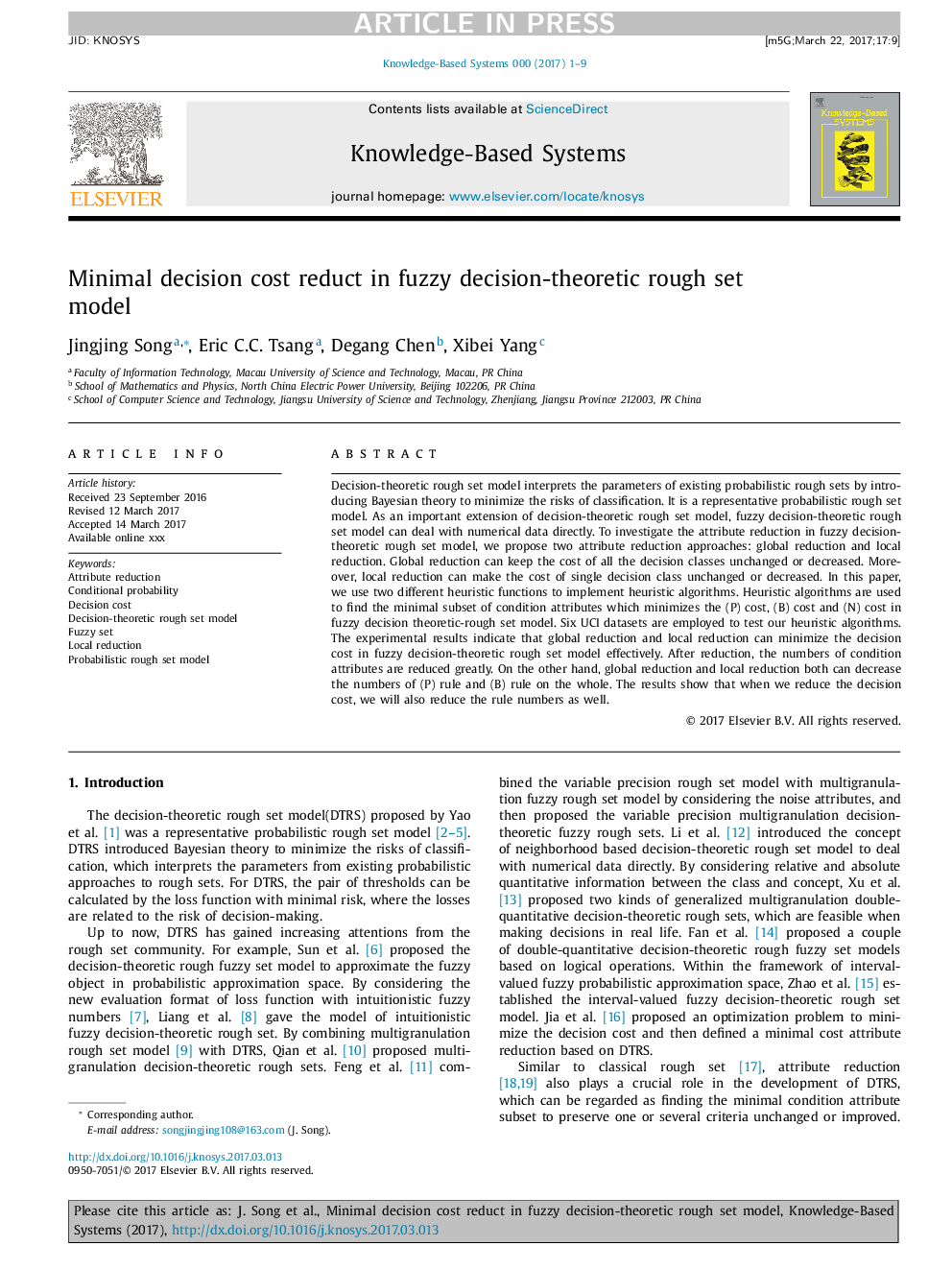| Article ID | Journal | Published Year | Pages | File Type |
|---|---|---|---|---|
| 4946254 | Knowledge-Based Systems | 2017 | 9 Pages |
Abstract
Decision-theoretic rough set model interprets the parameters of existing probabilistic rough sets by introducing Bayesian theory to minimize the risks of classification. It is a representative probabilistic rough set model. As an important extension of decision-theoretic rough set model, fuzzy decision-theoretic rough set model can deal with numerical data directly. To investigate the attribute reduction in fuzzy decision-theoretic rough set model, we propose two attribute reduction approaches: global reduction and local reduction. Global reduction can keep the cost of all the decision classes unchanged or decreased. Moreover, local reduction can make the cost of single decision class unchanged or decreased. In this paper, we use two different heuristic functions to implement heuristic algorithms. Heuristic algorithms are used to find the minimal subset of condition attributes which minimizes the (P) cost, (B) cost and (N) cost in fuzzy decision theoretic-rough set model. Six UCI datasets are employed to test our heuristic algorithms. The experimental results indicate that global reduction and local reduction can minimize the decision cost in fuzzy decision-theoretic rough set model effectively. After reduction, the numbers of condition attributes are reduced greatly. On the other hand, global reduction and local reduction both can decrease the numbers of (P) rule and (B) rule on the whole. The results show that when we reduce the decision cost, we will also reduce the rule numbers as well.
Related Topics
Physical Sciences and Engineering
Computer Science
Artificial Intelligence
Authors
Jingjing Song, Eric C.C. Tsang, Degang Chen, Xibei Yang,
